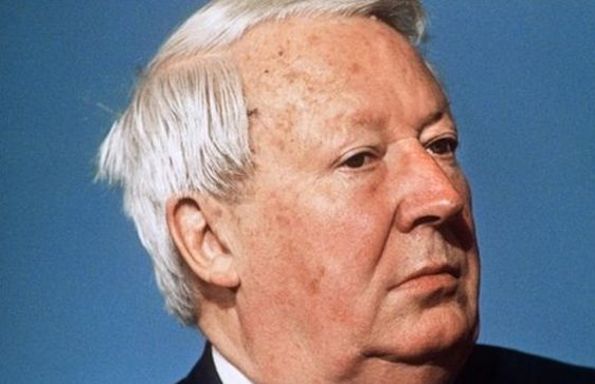It has been confirmed that British police are examining claims of child sexual abuse against a former prime minister, Edward Heath. The investigation is part of a range of inquiries into historical claims against a number of high-profile figures.
Professor David Pilgrim from the University’s Department of Sociology, Social Policy and Criminology explains the background:
What is Operation Hydrant?
“Operation Hydrant is an umbrella police operation set up in 2014 to pull together a bewildering array of investigations into historical child abuse across the UK. It is dealing with the cases of 1,433 alleged offenders, 216 of whom are dead and 76 of whom are politicians.
Among the operations that Hydrant collates are a number specifically investigating high-profile people. Operation Fairbank was set up by London’s Metropolitan Police Force several years ago as a scoping exercise to test the evidence for a larger formal inquiry about “VIP paedophiles” at Westminster. Operation Fernbridge was then launched in February 2013 to extend the rationale of Fairbank, and specifically to look at a Grafton Close care home.
Operation Cayacos was directed to one line of inquiry about a paedophile network centred on Peter Righton, a social worker involved with the Paedophile Information Exchange who advised the government on the reform of children’s homes . That inquiry also implicated politicians.
More recently, Operation Midland was set up to probe allegations of three murders of children and other illegal activity in connection with initial intelligence gathered by Operation Fairbank. Some of the alleged events purportedly took place at the Dolphin Square complex in Pimlico, home to many MPs and other politicians.
Operation Ahabasca examined the evidence of wrong-doing in the 1980s at the Elm Guest House in Barnes in south-west London, which was raided by police in the early 1980s for serving a brothel. There has been a flurry of press leaks concerning parties held there with under-age victims, pointing fingers at unnamed politicians from Sinn Fein, the Labour Party, the Conservative Party, the security services, and the media. The Elm Guest House is now a private residence and the owners have no connection to the historic allegations.
Others have been named: Sir Cyril Smith MP, Sir Nicholas Fairbairn MP, the Soviet spy Sir Anthony Blunt and the former British diplomat Sir Peter Hayman. Former Conservative Party Chairman, Sir Peter Morrison, was also apparently a visitor, years before he became Margaret Thatcher’s parliamentary private secretary.
Operation Yewtree is also being taken on board by Hydrant to follow up the extensive claims made about Jimmy Savile and the past responsibility of the police, the BBC and the NHS to his serial sexual offending against children and young people.”
Why is the Independent Police Complaints Commission involved?
“In March 2015, the Independent Police Complaints Commission (IPCC) was asked by the Metropolitan Police to examine serious allegations not only about politicians, but also a police cover-up, during a period between the 1970s and 2005.
The specific allegations to be examined included the claim that there had been “failures to properly investigate child sex abuse offences in south London and further information about criminal allegations against a politician being dropped”.
Others refer to sex parties involving minors being investigated that were dropped because the police reports were “too near prominent people”, and police covering up evidence about politicians. In this context of police forces being sensitive about past failures, the Wiltshire force was obliged to report the matter to the IPCC for its consideration.
This is part of a wider push to investigate historical abuse, which is being led by the Goddard inquiry.”
Why have allegations taken so long to surface?
“First, it has been claimed that there was political interference to drop investigations. The cases of Cyril Smith in Rochdale and London highlight this point, as does the alleged involvement of the security services.
It has been alleged that, during the 1980s, Margaret Thatcher was warned by her bodyguard about the lifestyle of her parliamentary private secretary Peter Morrison. Thatcher put Savile forwards three times for a knighthood, despite doubts about his general suitability being expressed by senior advisors (with no indication that they knew of any allegations of abuse). She knew of the allegations emerging about Cyril Smith and Kincora and the security services but did nothing. And of course Leon Brittan, her home secretary, has been accused of presiding over the loss of evidence in Whitehall and is the subject of allegations of child sex abuse.
Second, it has been suggested that police were intimidated in the light of the above political secrecy by those with the power to threaten them with the Official Secrets Act.
Finally, the media was fearful of libel charges and at times even received D-notices – gagging orders which prevented them from reporting allegations that were never followed up by the police. The Goddard Inquiry has taken the step of guaranteeing immunity for anyone who signed the Official Secrets Act and now wishes to testify.”
What are the prospects for justice for victims?
“Predictions in all human affairs are never easy. Based on the past 30 years, with the history of suppressed evidence just noted, the cynicism of victims is easy to understand. Inquiries take time and if they go on too long, legitimate questions of justice might be kicked into the long grass.
We may end up with a few scalps of dead criminals, whose libertarian defenders will note were never brought to trial and so lost their presumption of innocence. Whatever happens, we do know that child sexual abuse is massively underestimated. Part of this is because paedophiles have to be adept at hiding their proclivities – and the rich and powerful ones have extra resources to evade justice.
Part of this is about children not being believed. That is compounded when those victims survive, grow up, and then their claims are still never heard in court. These factors then limit our confidence in there being full justice for victims.”
This article was first published in `The Conversation’.
